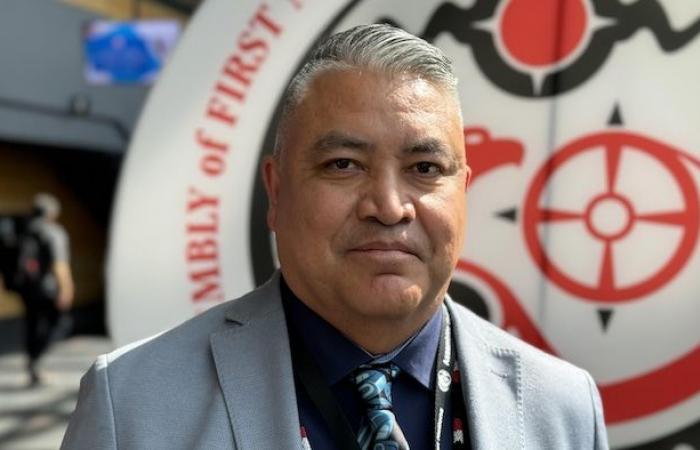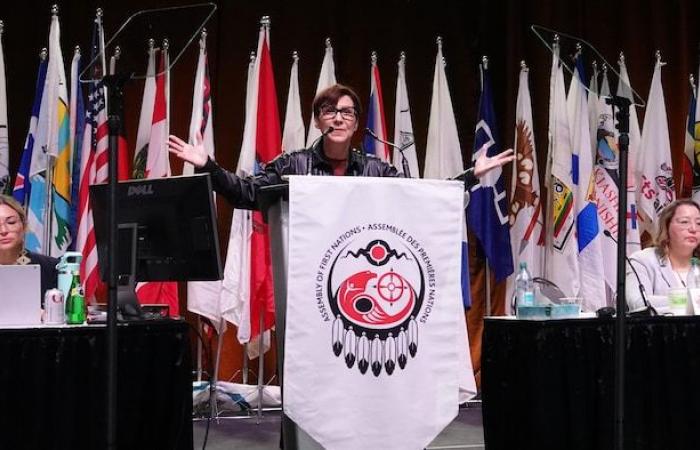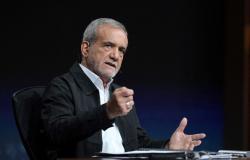First Nations leaders are urging the Government of Canada to reverse its decision and begin new national negotiations on reforming the Indigenous child welfare system.
The government must stop playing
et return to the negotiating table
national, said David Pratt, vice-chief of the Federation of Sovereign Aboriginal Nations, which represents 74 First Nations in Saskatchewan.
After the proposed $47.8 billion deal over 10 years was rejected by Assembly of First Nations (AFN) leaders in October, Ottawa finally announced in January that it did not have the mandate to return to the negotiating table to develop a national agreement. He is now only working on a regional agreement with the chiefs of the First Nations of Ontario and the Nishnawbe Aski Nation, who had spoken in favor of the agreement.
It’s unfortunate that Canada is choosing this path
Mr. Pratt told CBC Indigenous. They work honorably with Ontario, but to the exclusion of the rest of the country.
The regional chief of the Assembly of First Nations of British Columbia, Terry Teegeehas the impression that the chiefs who did not support the proposed agreement get punished
.
It’s like we’re being punished for not toeing the line, and that’s a real problem. These are not good faith negotiations
he said to CBC Indigenous.
Open in full screen mode
Terry Teegee is the regional chief of the Assembly of First Nations of British Columbia. (Archive photo)
Photo: - / Ismaël Houdassine
L’APN also indicated in a press release on Friday that it could borrow the legal route
to obtain an agreement if Canada is not willing to negotiate nationally
.
It would be disappointing if we had to go to court again for something that Canada has a duty to do
estimated Mr. Get it.
We would not be here if Canada had not discriminated against our children for many, many years.
It’s not like they’re doing us a favor, it’s their obligation to do it
added Mr. Get it.
A spokesperson for the Minister of Indigenous Services, Patty Hadju, recalled last week that Ottawa’s decision was not intended to excludeAPN and that the government did not refuse to follow the directions of the leaders either.
Continue the fight
If the Government of Canada remains firm in its position, we will continue the battle
which is at the origin of the negotiations between Ottawa and the First Nations, indicated Mr. Pratt.
A reform of indigenous children’s services has been the subject of negotiations since the Canadian Human Rights Tribunal ruled in 2016 that the government had racially discriminated against First Nations children by under defunding the child welfare system in their communities and refusing to respect Jordan’s Principle.
Jordan’s Principle aims to ensure that First Nations children have timely access to health and social services without discrimination.
Open in full screen mode
In October, Cindy Blackstock clearly said she could not approve this agreement, while National Leader Cindy Woodhouse Nepinak (to her right) listened to her arguments.
Photo: - / Marie-Laure Josselin
This is a complaint filed in 2007 by theAPN and the First Nations Child and Family Caring Society (FNCFS) – supported by Ontario First Nations Chiefs and the Nishnawbe Aski Nation – which led to the Tribunal’s decision.
The director of the SSEFPNCindy Blackstock, opposed the proposed agreement, justifying that it advertised big money and looked good until you read the fine print
.
The proposal also included secret governance without regional representation
Ms. Blackstock had written about X. Not surprisingly, it was not endorsed by First Nations at the national level, who set out a plan to negotiate a more effective, equitable and inclusive agreement.
Last week, NDP MP Lori Idlout accused the Liberals of trying to pit the country’s First Nations against each other by refusing to negotiate at the national level. A fair criticism, according to Terry Teegee.
David Pratt highlighted the work of Ontario chiefs, who negotiated an agreement to their advantage. But he recalled that the heads of theAPN rejected the $47.8 billion proposal, among other things, because it favored Ontario too much.
Prime Minister Justin Trudeau’s decision to leave office and prorogue Parliament until March 24 suggests little progress on this issue in the months to come.
It’s frustrating
confessed Terry Teegee. We are caught in the middle of all this political turmoil created by the Trudeau administration.
In the end, it may be the children who pay the price, and that’s not a good thing.
Pratt said if the government’s goal is to scare First Nations into turning around and accepting a deal they already believe is inadequate, that won’t happen.
I don’t see the leaders being convinced by intimidation tactics, because we’ve been in this situation for so long with Canada. It’s not new
he said.
I think there is a lot of work to be done and I am hopeful. We always have hope and we are always optimistic.
Based on a text by Brett Forester, CBC Indigenous







